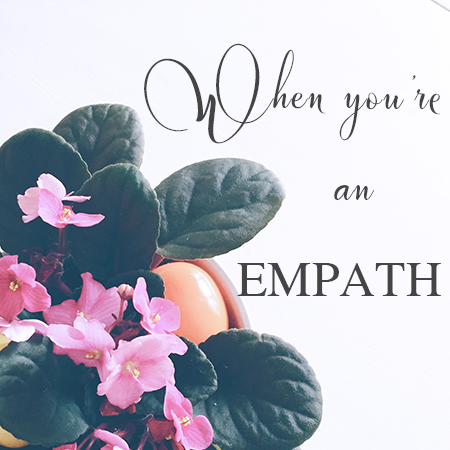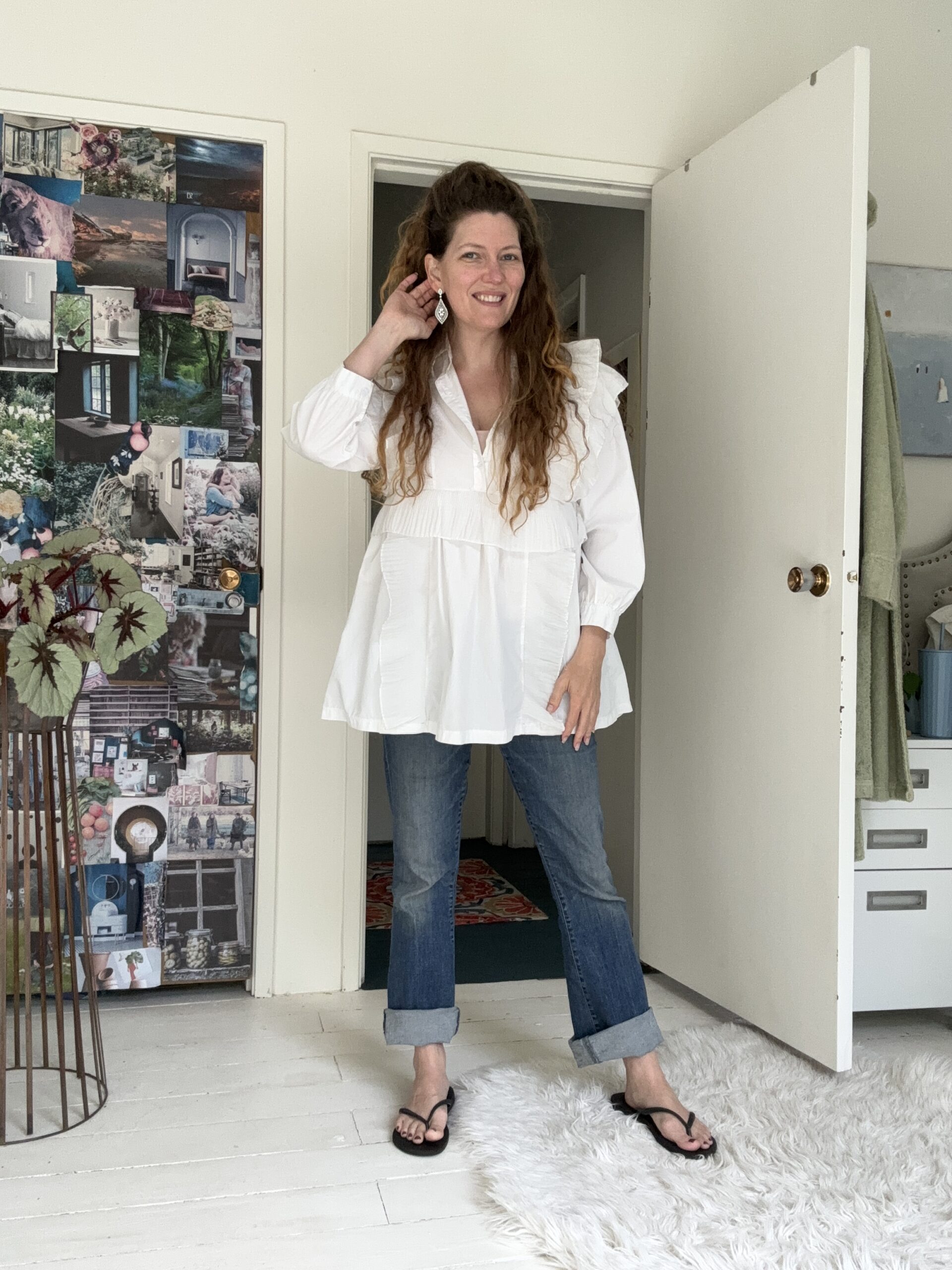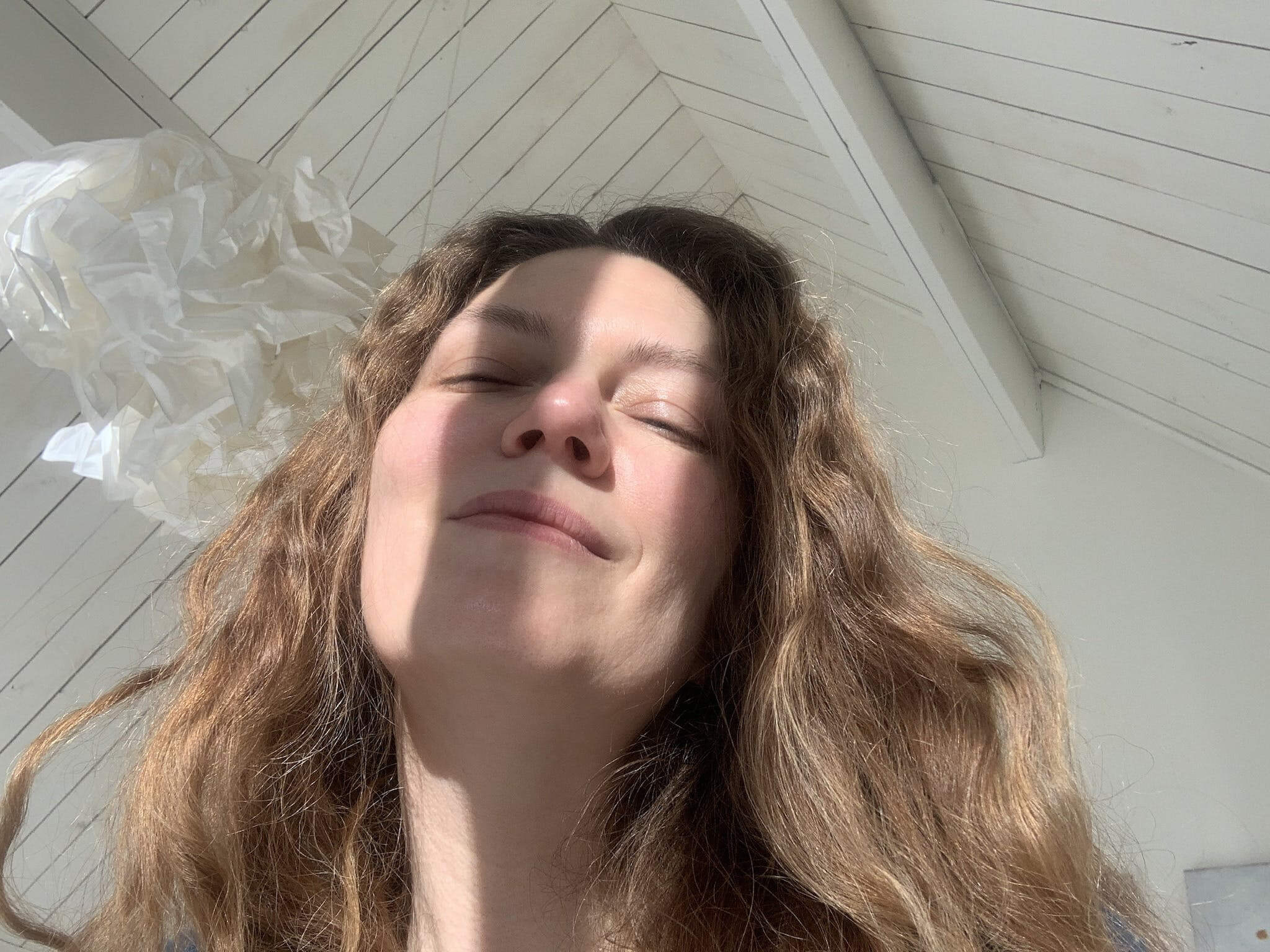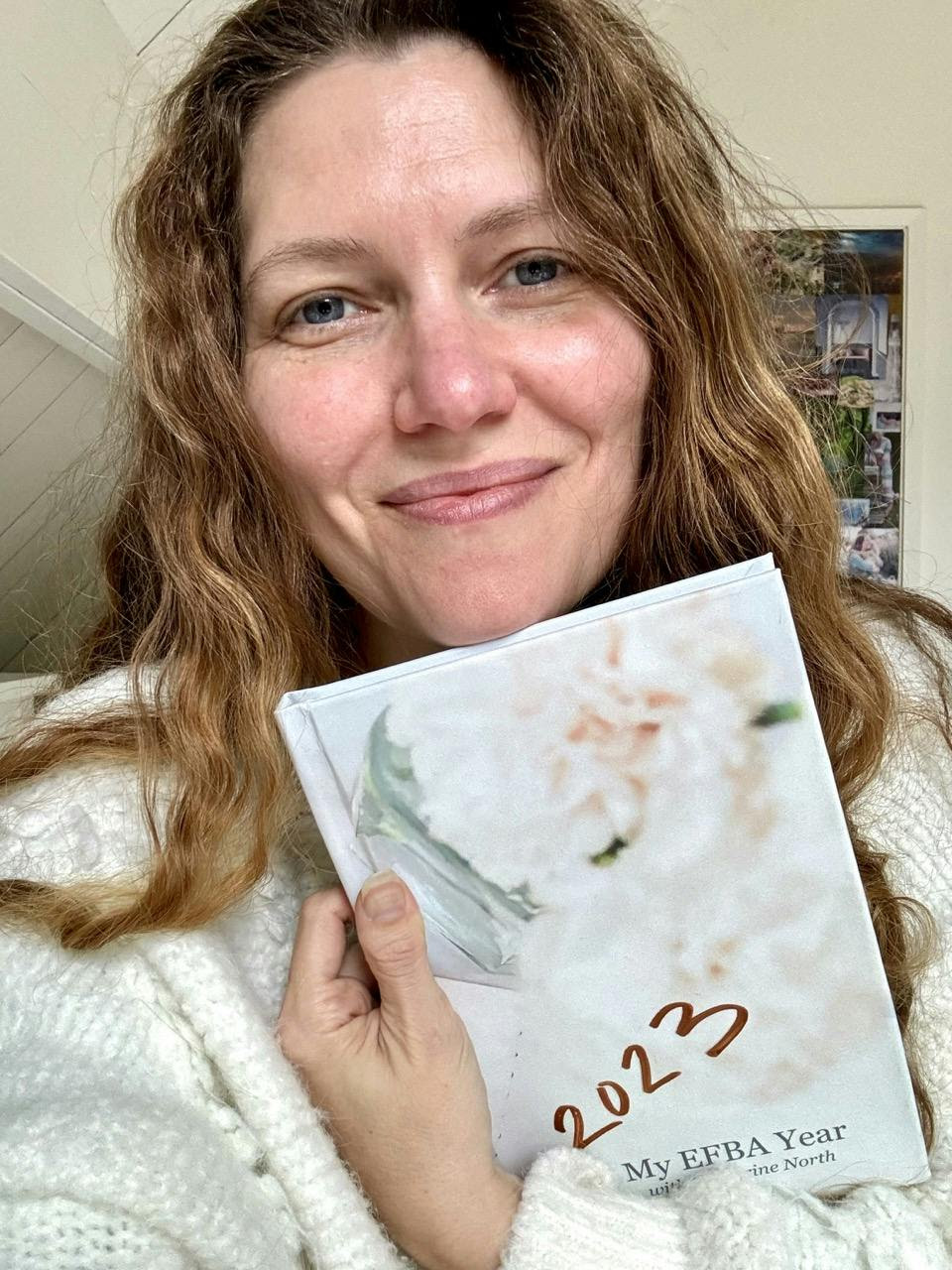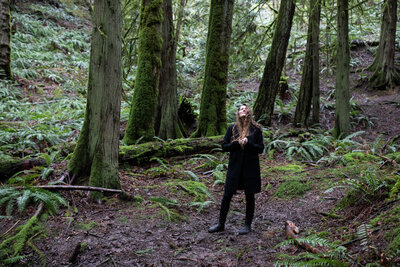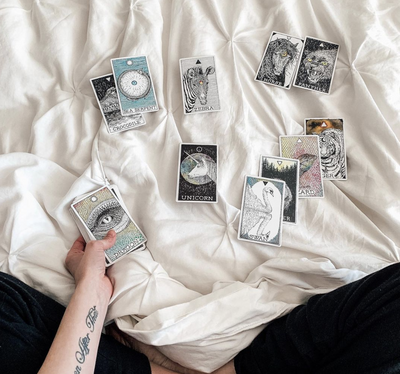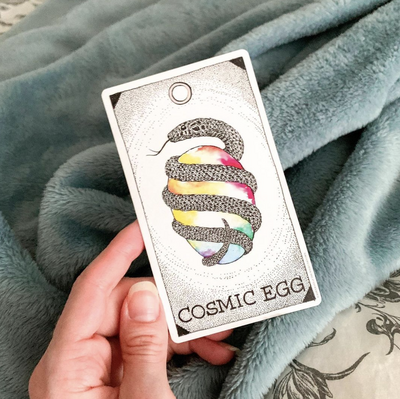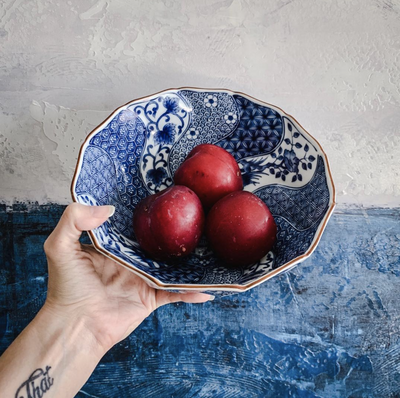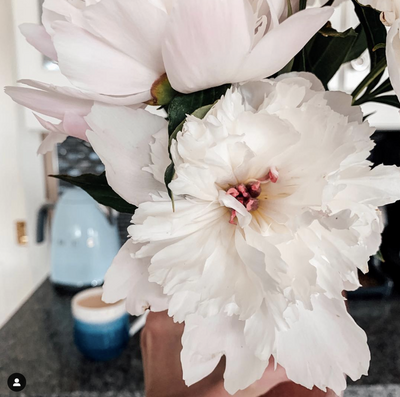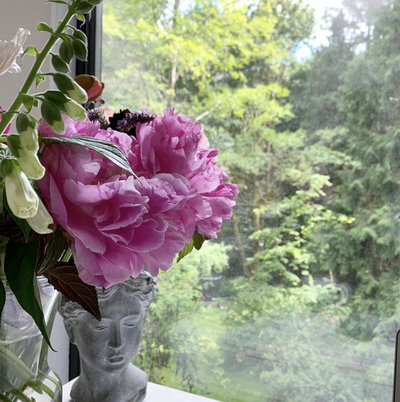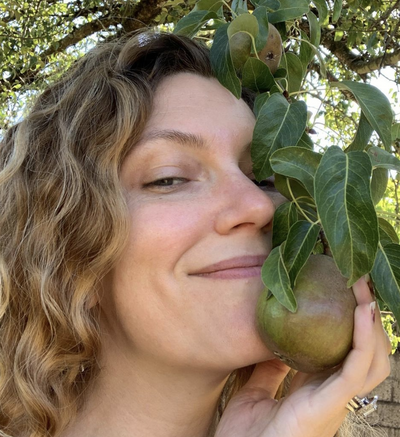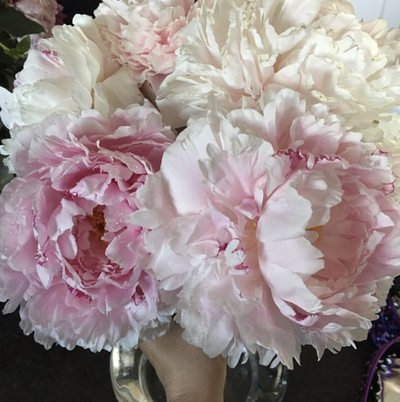The CEO was getting frustrated. I could tell, because even though he looked cool as a cucumber, I felt like I had swallowed a golf ball and it was stuck in my throat. The VP was terrified because her presentation was going so badly– her anxiety was like a high mosquito whine in my ear. The important client was getting skittish because the tension in the room was so intense, and his awkwardness was like an itch under my skin.
Does that sound crazy? I’m not a mindreader or a hypochondriac; I’m just an empath, someone who takes on other people’s feelings. You might find that you are, too– that people confide in you, that you can read the subtext of a conversation, or that you get unsettled when people get angry or upset. I bet your family and colleagues are drawn to your kindness and your compassion. Those are wonderful qualities, darling, and they look fabulous with your earrings.
But if you don’t know how to draw some loving boundaries around your sweet empathic self, you may find that instead of happily skipping through life, you’re slogging through a thick soup of drama.
What’s an empath?
Many loving people are naturally tuned in to the emotions of those around us. It isn’t something we try to do consciously; we can just tell from subtle inflections in body language and tone how someone is really feeling. It’s easy for us to step into their shoes and empathize with their emotions.
Everyone has the capacity for empathy, but if you’re highly empathic you might not know how to turn it off when you want to. That’s how you end up weeping at telephone commercials and listening to Great Aunt Ethel’s surgery story…again.
It can be disconcerting to think of someone else’s emotions wreaking havoc on your own. But if other people’s feelings keep knocking you off-kilter, you’re not crazy and you’re not “too sensitive.”
In fact, once you stop knocking back every shot of emotional drama that comes your way, you’ll find you possess a potent gift.
But I want to help!
I wasn’t psychic, but I was tuned in to some channel no one talked about. Sadness and disappointment played underneath the merry soundtrack of family gatherings and festive parties.
I didn’t know what to do about this, except feel truly awful about it. Like many empaths, I entered into other people’s misery out of a misguided sense of usefulness.
You too may have a wild hope that if you could just feel everyone’s pain for them, maybe they’d finally feel better! Sociologist Dr. Martha Beck calls us ‘the sponge people,’ because we soak up whatever emotions are oozing around us.
I personally tried to clean up the world one cocktail party at a time, and I was about as effective as most bar sponges after a hard night.
I worried that I was either 1) neurotic, or 2) lost in the land of auras, crystals, and pyramid schemes.
Actually, scientific breakthroughs demonstrate that all humans have mirror neurons that let us viscerally experience the sensations we observe in others. It wasn’t my imagination or my tragic destiny; it was just my neurons!
(My highly unscientific theory is that if you studied the brains of us empaths, our mirror neurons would look like disco balls, merrily magnifying the pain and emotions of those around us.)
True heroism
My empathic clients sometimes feel like wimps for being so sensitive. They expect their compassion to translate into heroic action, which leads them to feel guilty about small personal failings like world hunger.
But we simply can’t be heroic when we’re drinking the suffering around us. It literally makes us sick.
To be useful to the world, you have to be more than a dumping ground. You want to bring love and peace into the world? Wonderful! Start by deliberately filling yourself up with loving and delicious sensations, thoughts, and feelings.
Practice being ‘full of yourself’ in the best possible way. This doesn’t make you a heartless egoist. It actually turns you into a source of calm, compassionate energy, and it stops you from absorbing negativity.
Here are three good places to fill up your cup:
The earth. Resting your feet on the ground and your eyes on nature is one of the best ways to reset your nervous system and bring you back to center. New Age types call this getting ‘grounded,’ but you could also think of it as activating your parasympathetic nervous system, the one you go to all those yoga classes for.
If you are feeling particularly upset by something, use your imagination to send that frantic energy down into the earth, planting it where it can turn into something more useful, like snow peas or beetle food.
Your own intuition. Most empaths are highly discerning but have been told their whole lives to stop being so sensitive or dramatic. Don’t discount the useful information that shows up as physical sensations. Maybe it’s a twist in the gut at someone who seems perfectly nice, or an uneasy fluttering as you agree to volunteer for a project that will turn out to be a nightmare.
Tuning in to these sensations and the good clean information they offer is one of the best ways to protect yourself on every level: pragmatic, emotional, and spiritual.
Beauty. Flooding your senses with anything that delights you is a powerful way to shift yourself into clarity. Whether it’s autumn colors, bewitching perfume, or your favorite song, regular infusions of beauty are like wheat grass shots for empaths.
You can call it ‘raising your vibration’—or you might just call it joy. Either way, filling your life with beauty is essential, not an indulgence. Just think of it as taking your antioxidants.
When you connect with the earth, honor your own judgment, and drink deeply from beauty, you fill yourself up with a sense of safety and compassion.
The world is thirsty for this sort of loving presence, and you’ll find that you can share it without getting depleted.
Over the next few days I’ll be sending you some more resources about how to become the love warrior I know you’re meant to be– tough, savvy, brave… but also tender, open, and loving. Keep your eyes peeled!
much love,
Anna
